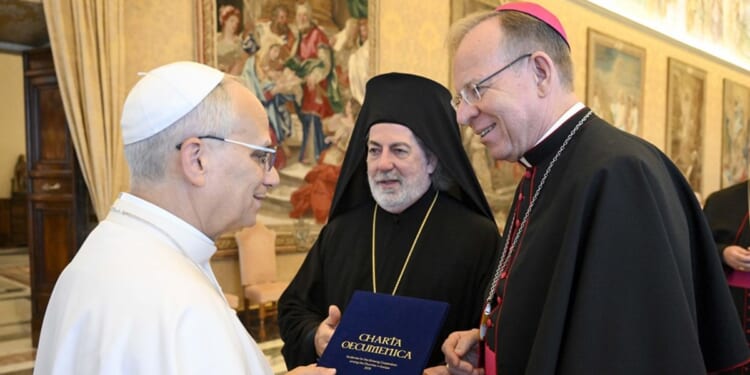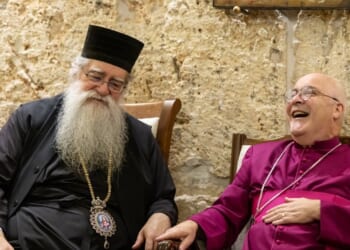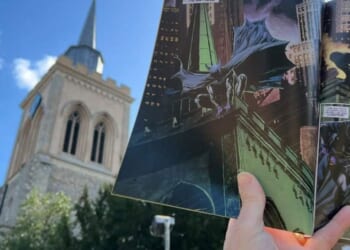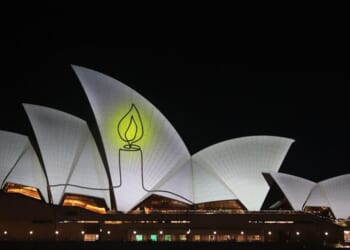CHURCHES in Europe have renewed their commitment to mutual responsibility and engagement in the face of current challenges, in an ecumenical declaration marking the 1700th anniversary of the Council of Nicaea (News, 27 June).
“Europe is becoming increasingly secular — in most parts of Europe, the role of the churches can no longer be taken for granted,” the document, prepared during a three-year inter-Church consultation, says.
“This loss of influence has many causes, among them a lack of credibility due to personal and structural sins in the Churches. In this situation, the need for ecumenical sharing has become ever more evident.”
The statement forms part of guidelines in an updated Charta Oecumenica, presented last week in Rome by the Conference of European Churches (CEC) and the Roman Catholic Council of Bishops’ Conferences of Europe (CCEE).
The 23-page text says that Europe’s recent history of “secularisation, pluralism and individualism” has produced “varied and complex relations between states and religions”. It goes on to say that, with varying results, the continent’s “social, spiritual and ecological landscape” has also changed since a previous Charta Oecumenica was signed in 2001, and that updates are necessary (Books, 17 January 2014).
Among the most pressing needs, it lists the pursuit of peace and reconciliation, and safeguarding creation in the face of new technologies, as well as engagement with young people, care for migrants and refugees, deeper relations with other faith communities, and steps to counter dehumanisation, religious extremism, and aggressive nationalism.
“Our commitment to one another as churches is not abstract — it is grounded in shared faith, lived out amid pain, division and hope,” the document says. It is co-signed by the president of the CEC, the Greek Orthodox Archbishop Nikitas (Lulias) of Thyateira & Great Britain, and, for the CCEE, by the Archbishop of Vilnius, the Most Revd Gintaras Grušas.
“We recognise that the Charta has no magisterial or dogmatic character; nor is it legally binding under church law. Its authority and purpose derive from the voluntary commitment of the European churches and ecumenical organisations to use, adapt and implement it in ways appropriate and fruitful at different levels and in different contexts.”
Vatican Radio said that Pope Leo, who is to visit the site of the Council of Nicaea with other religious leaders later this month, had welcomed the updated Charta Oecumenica as a sign of willingness by European Churches “to look at history through the eyes of Christ”.
A theologian with the Vatican’s Dicastery for Promoting Christian Unity told the Church Times that ecumenical dialogue had been declared “fundamental to understanding synodality” by the16th General Assembly of the Synod of Bishops in October 2024.
“The Catholic Church has long since affirmed its relationship with other Churches, seeing them not as schismatics but as Churches in the true theological sense,” said Professor Myriam Wijlens, who teaches at the University of Erfurt, in Germany, and was an adviser to the Rome Synod.
“The signals suggest we are all now following on the same path in a world crying out for unity and peace, as Christians strive to contribute to a culture of mutual listening and dialogue.”
















